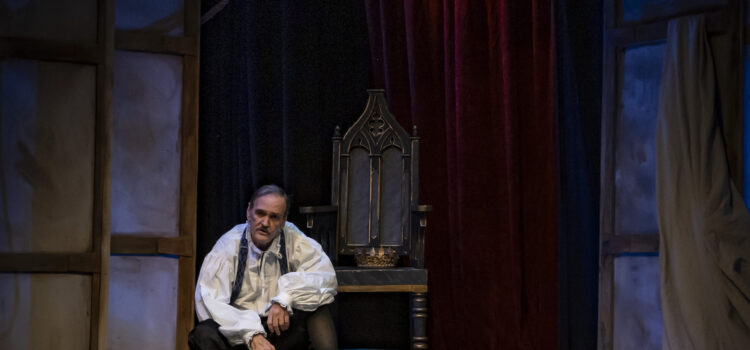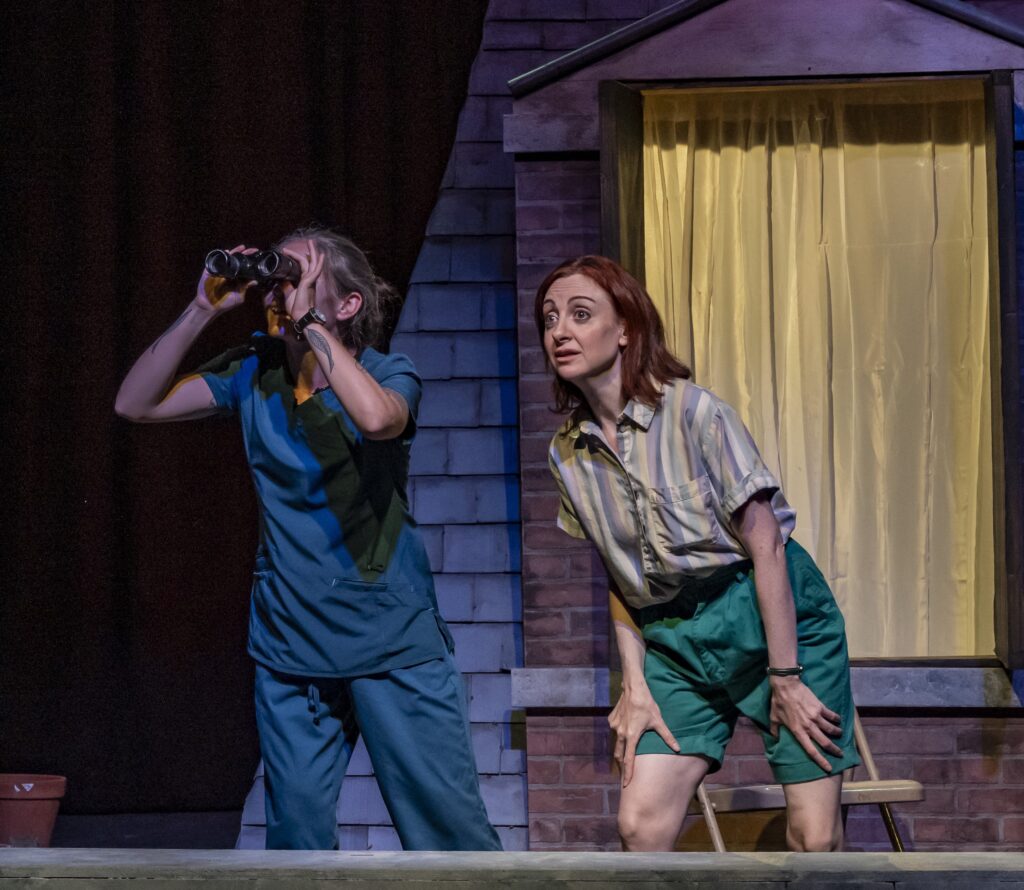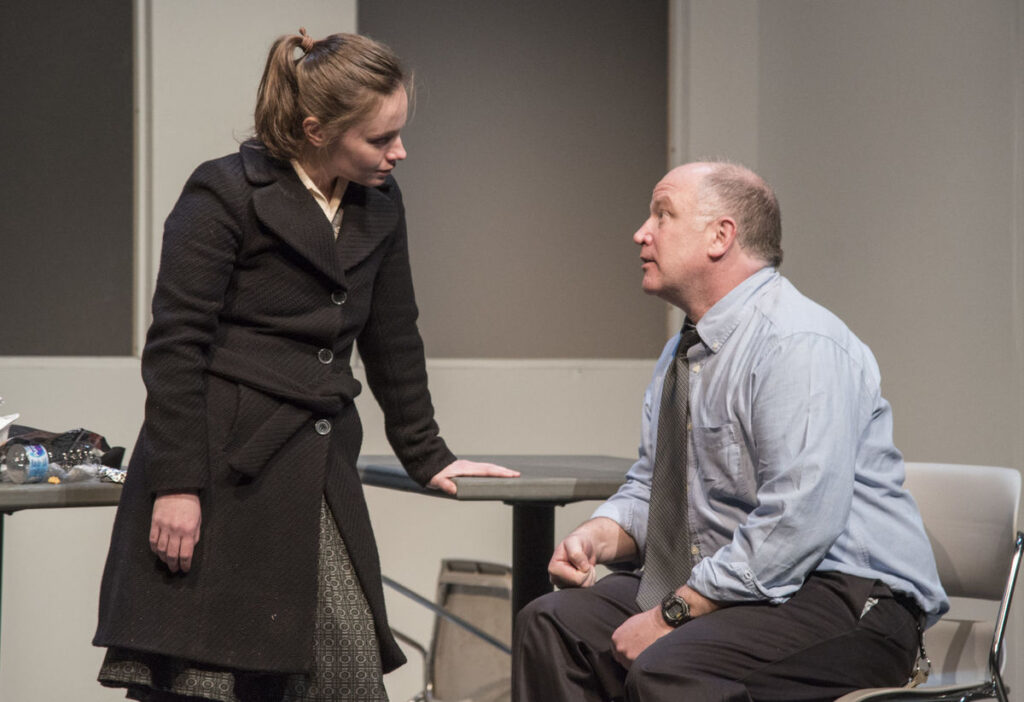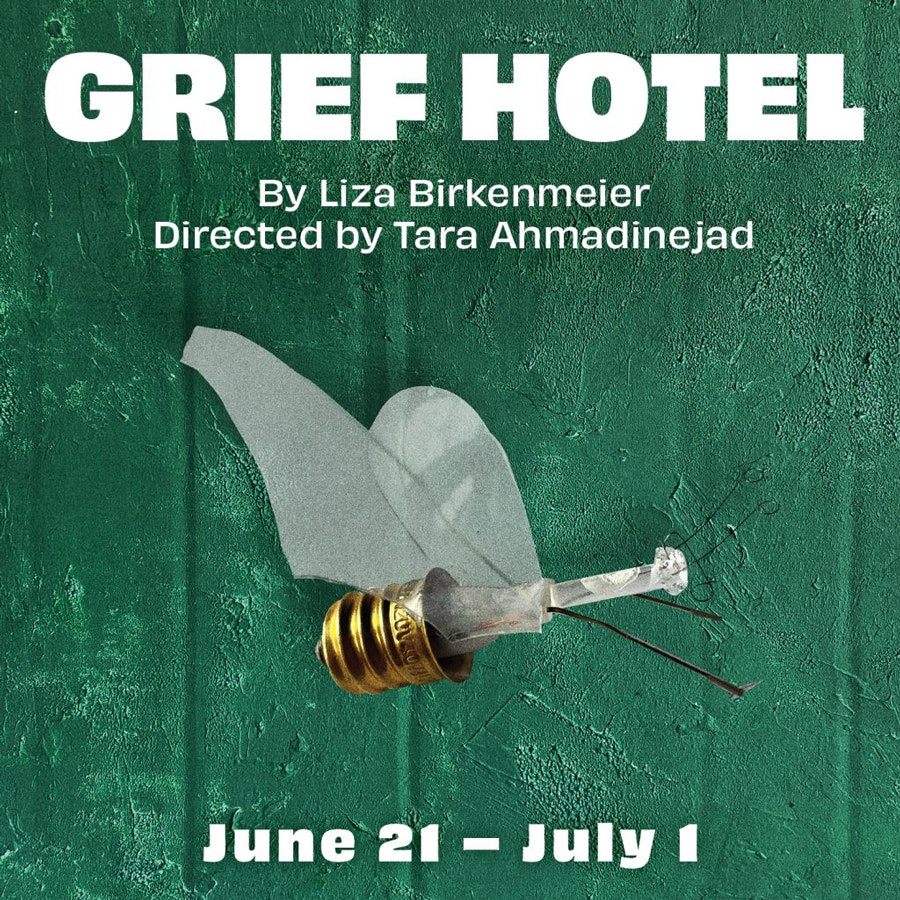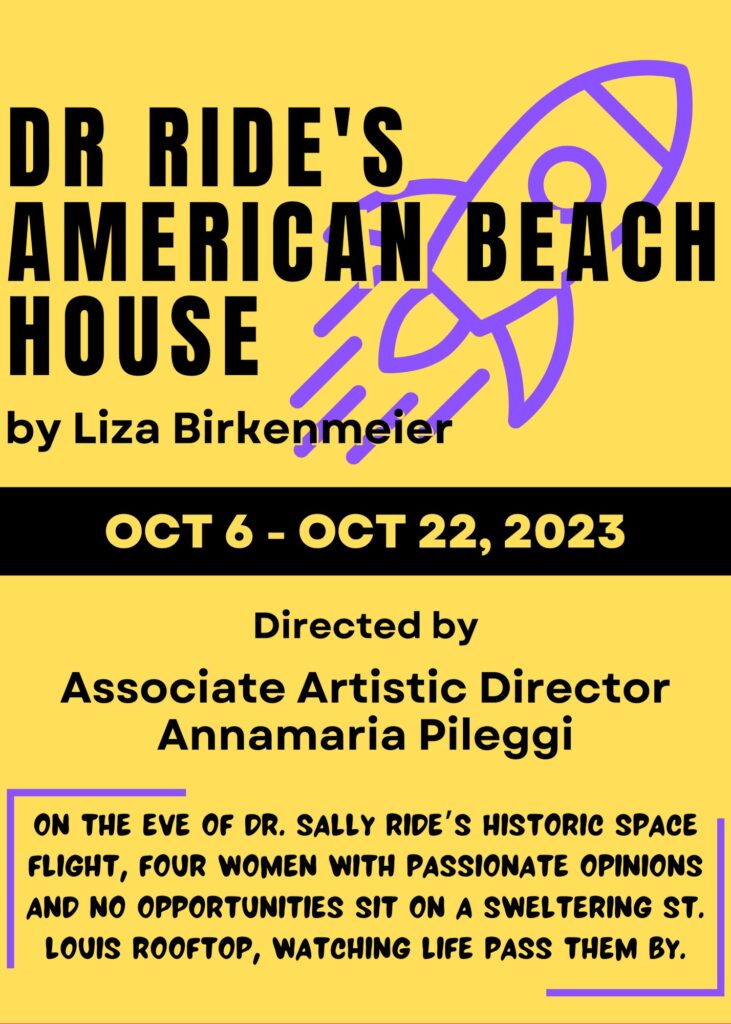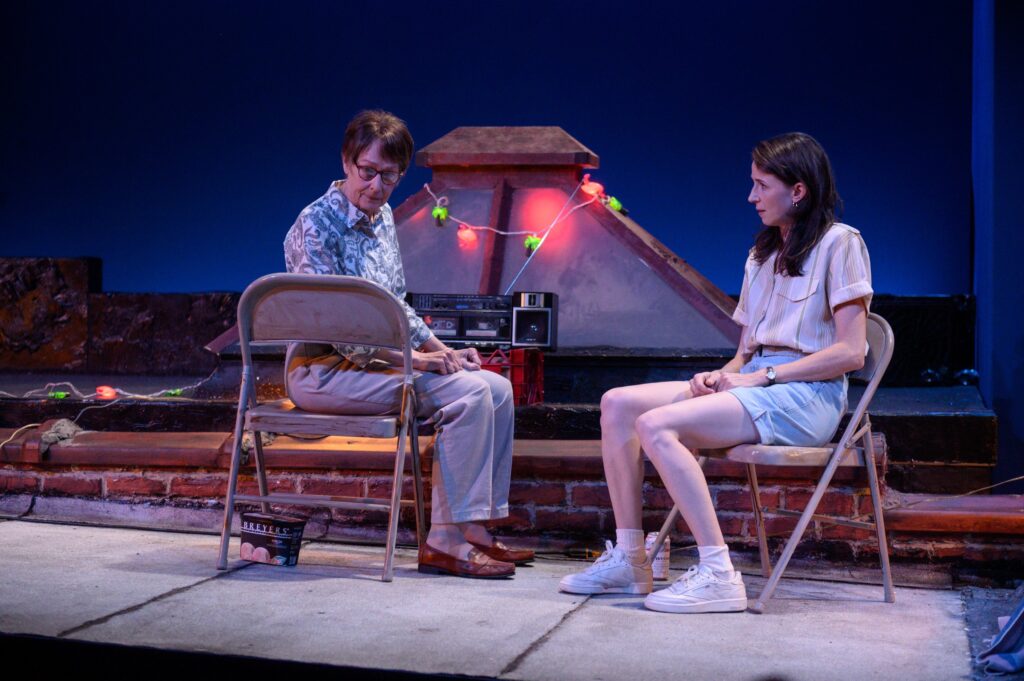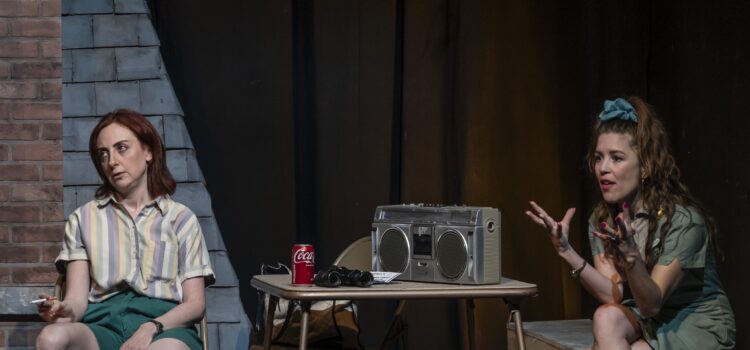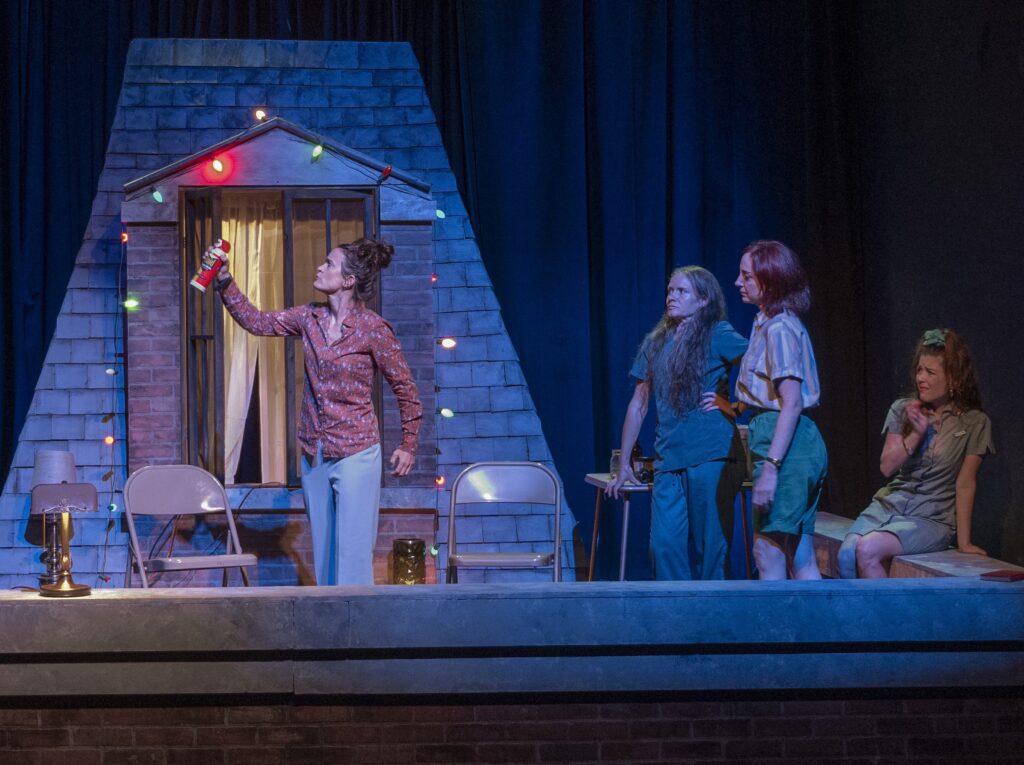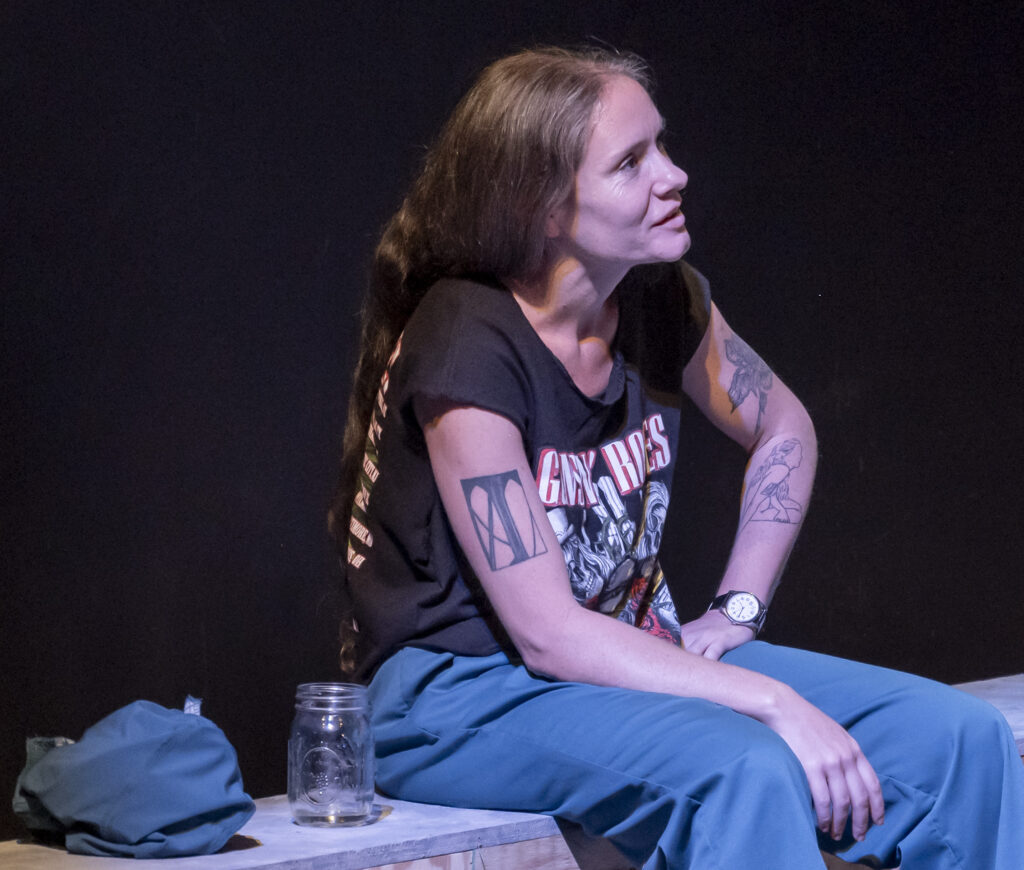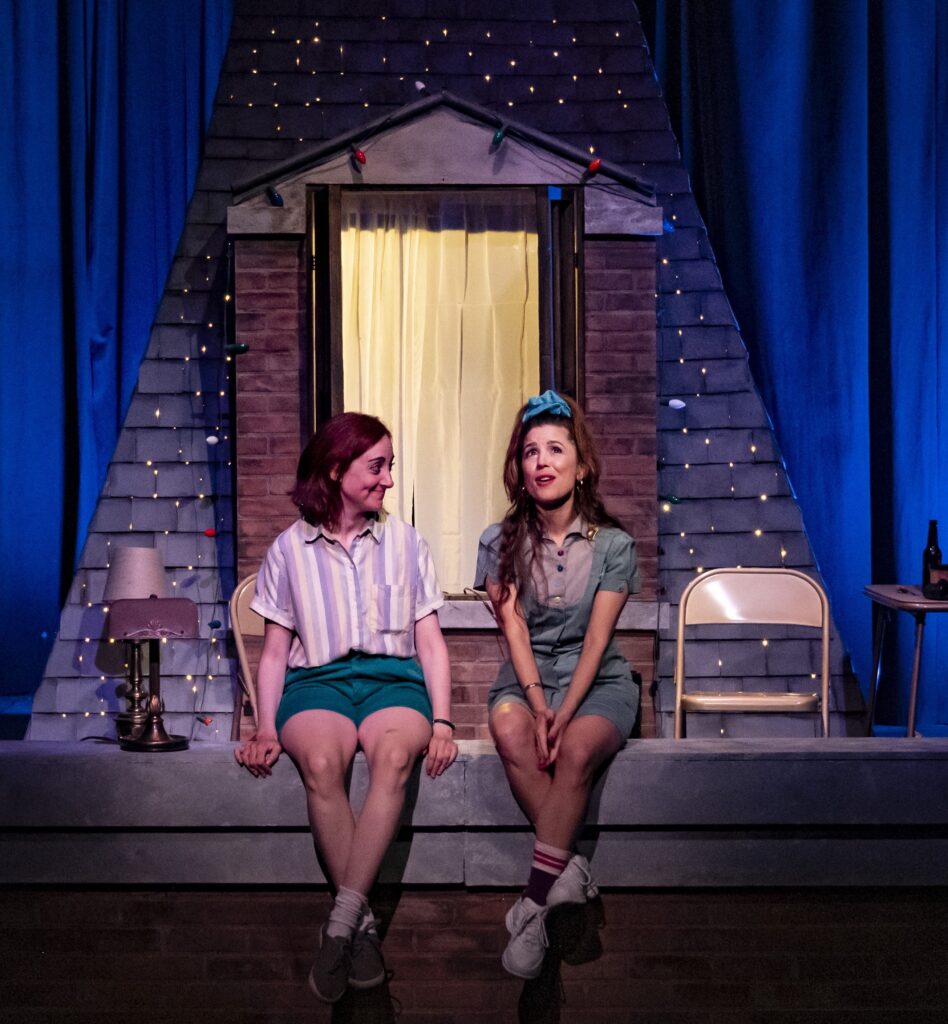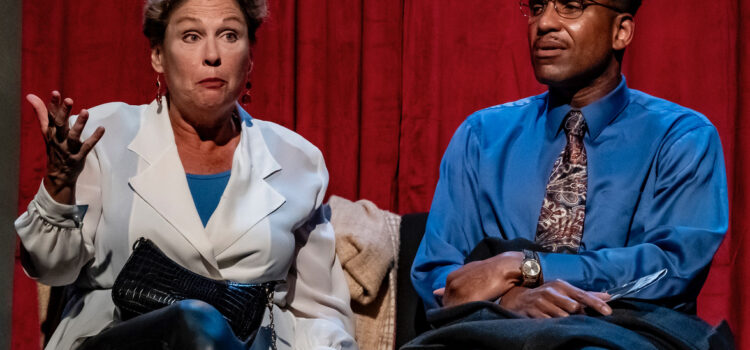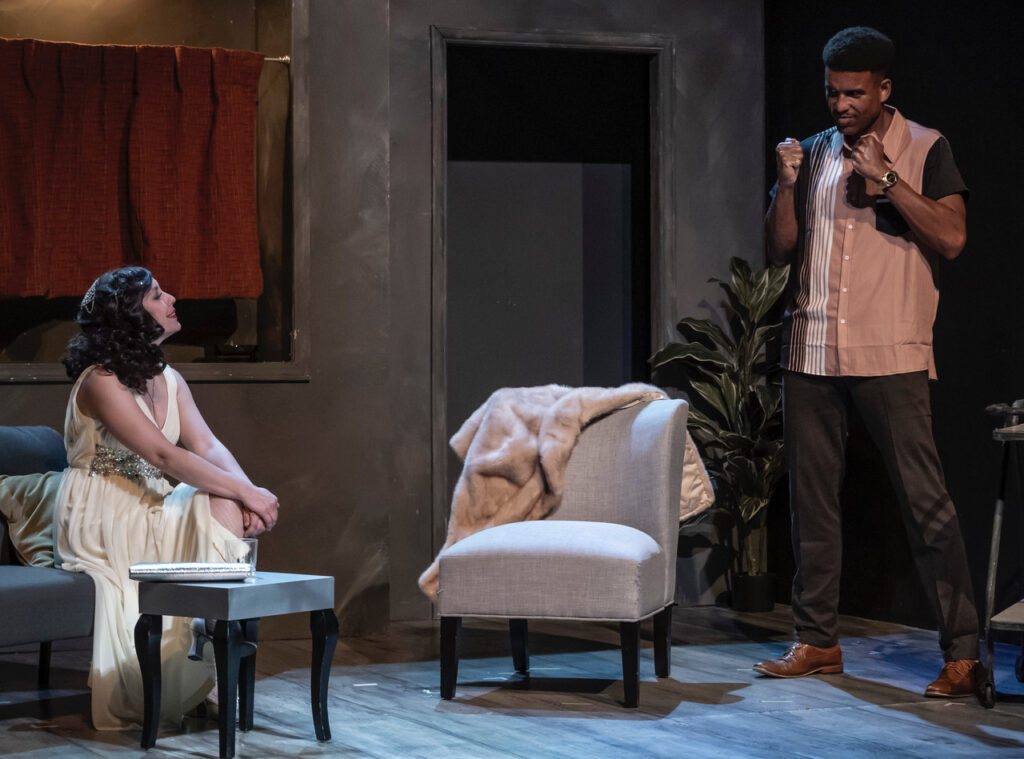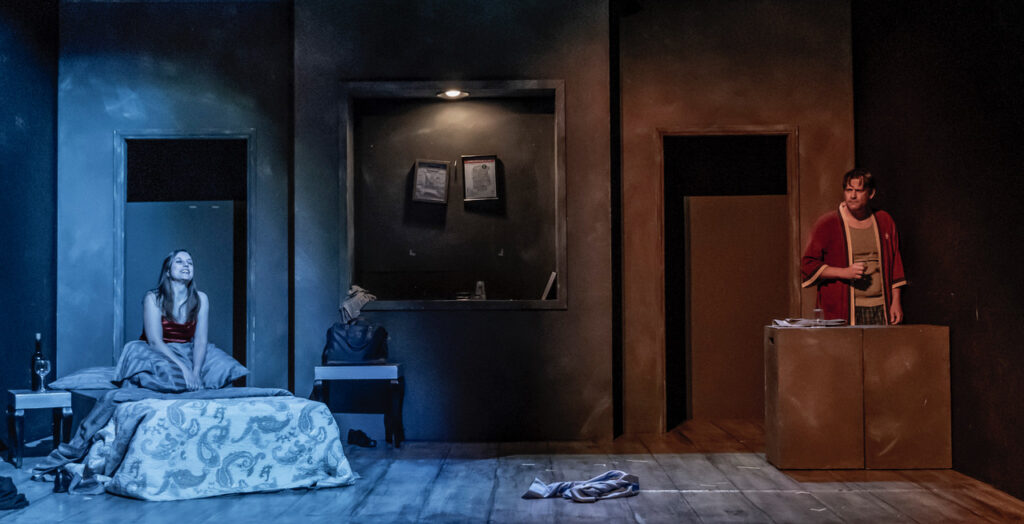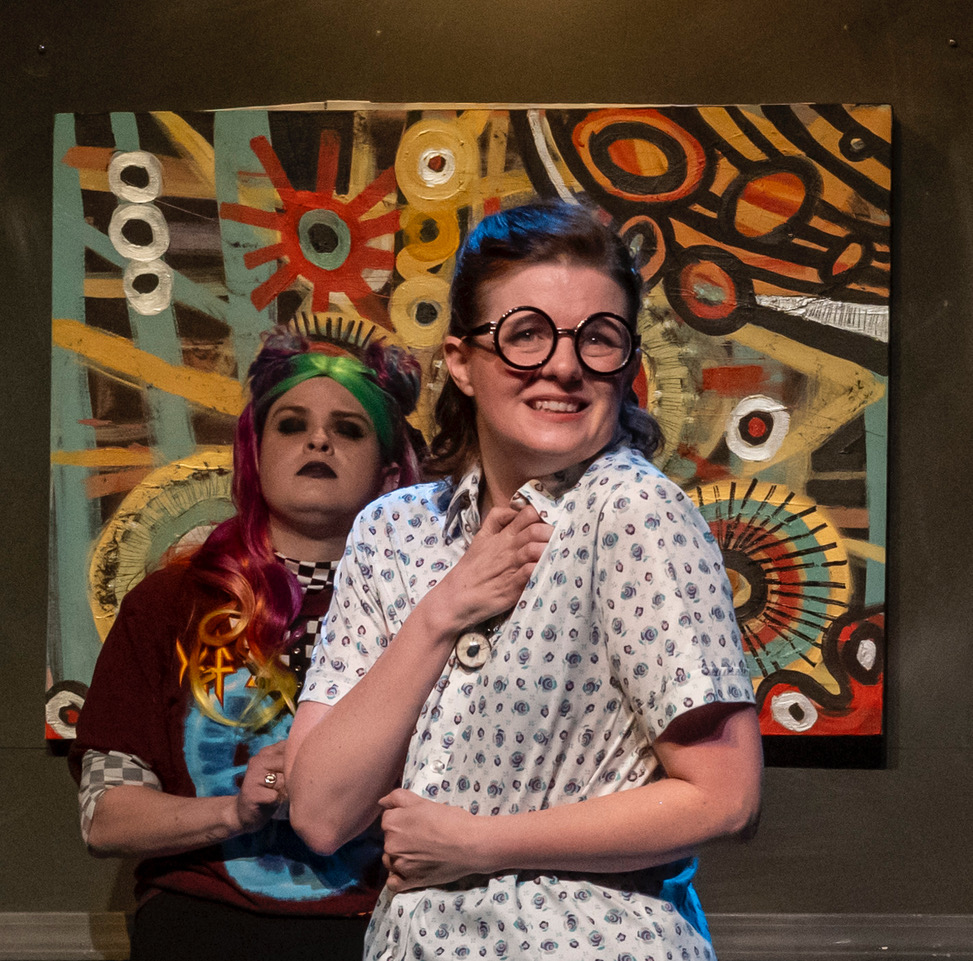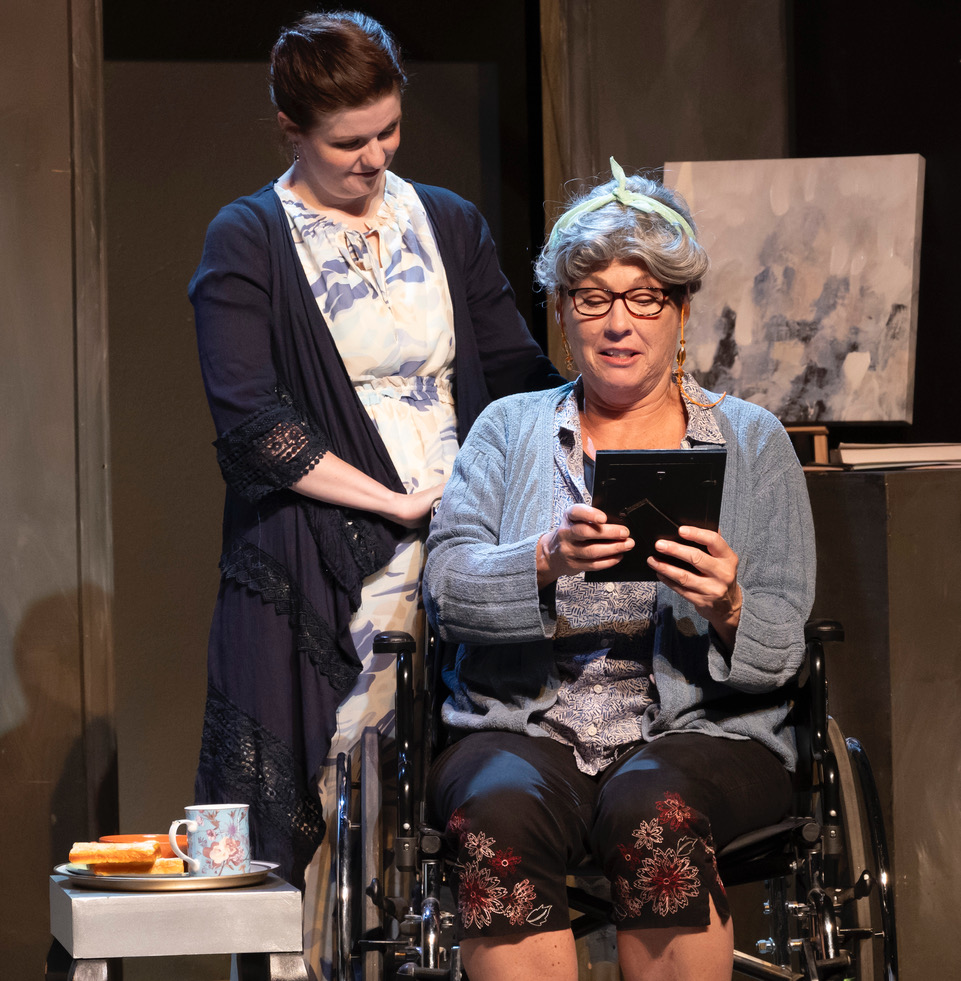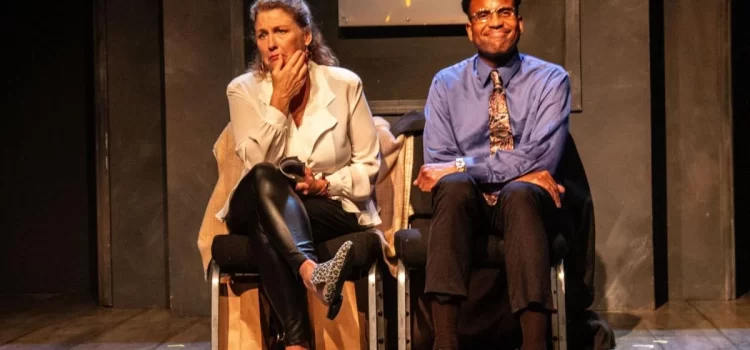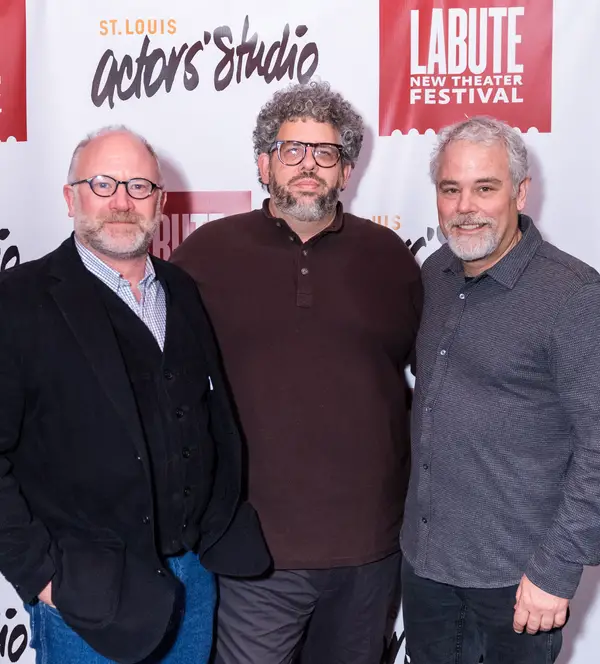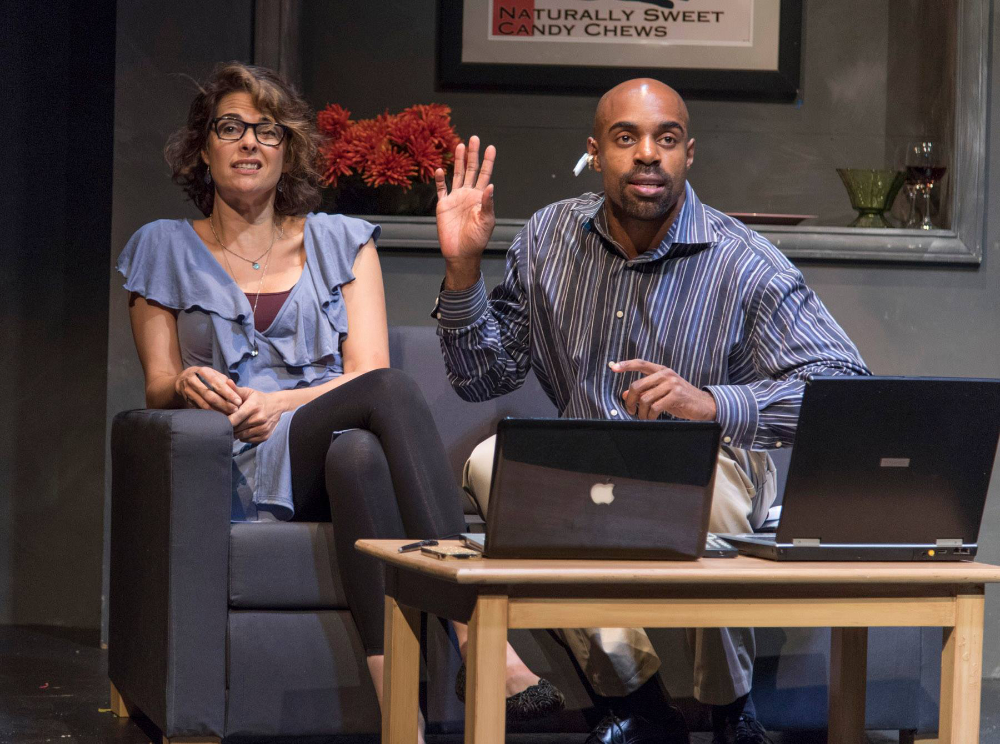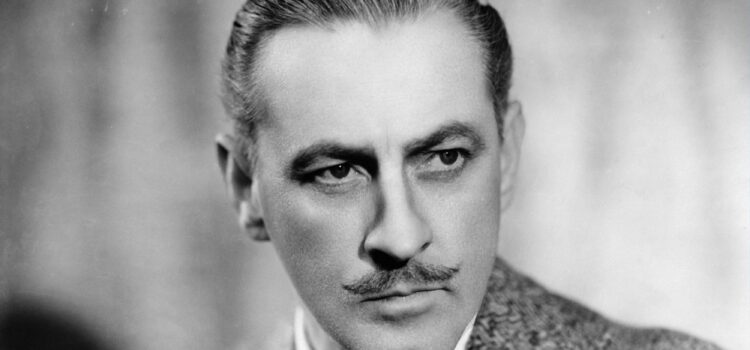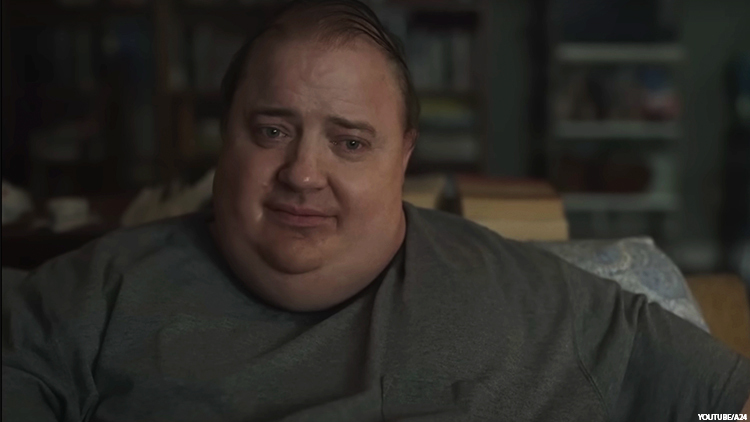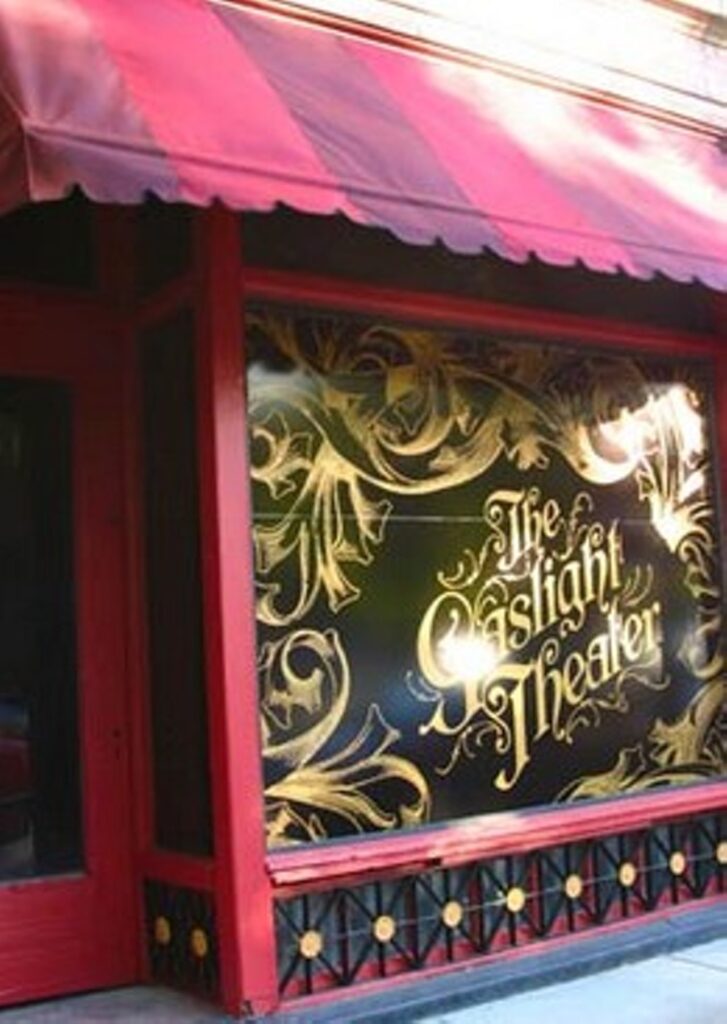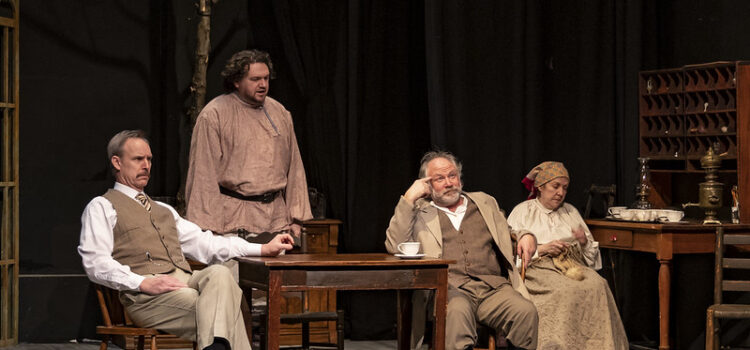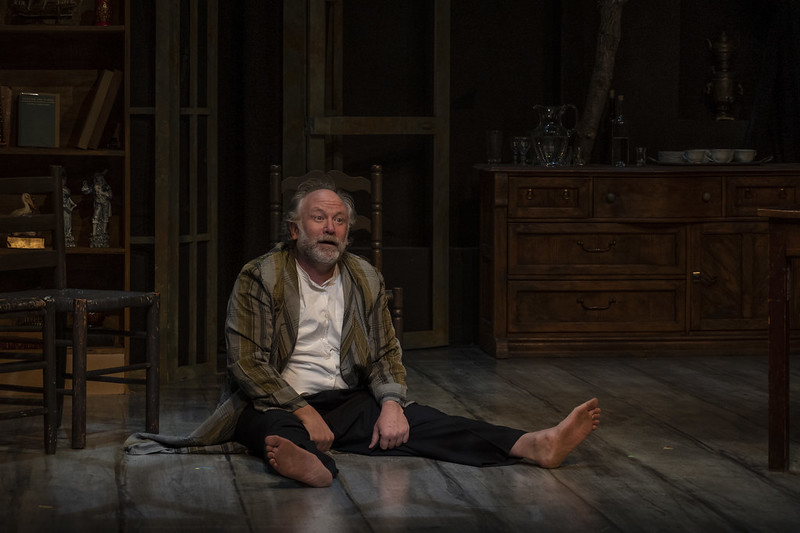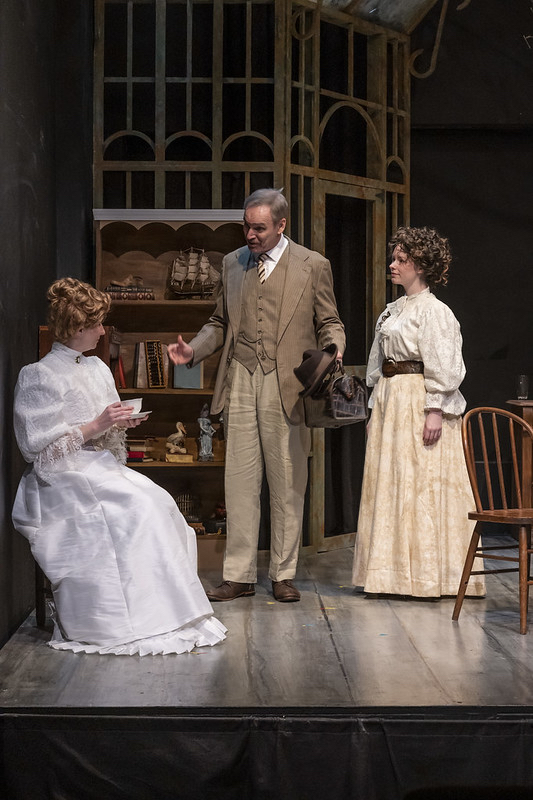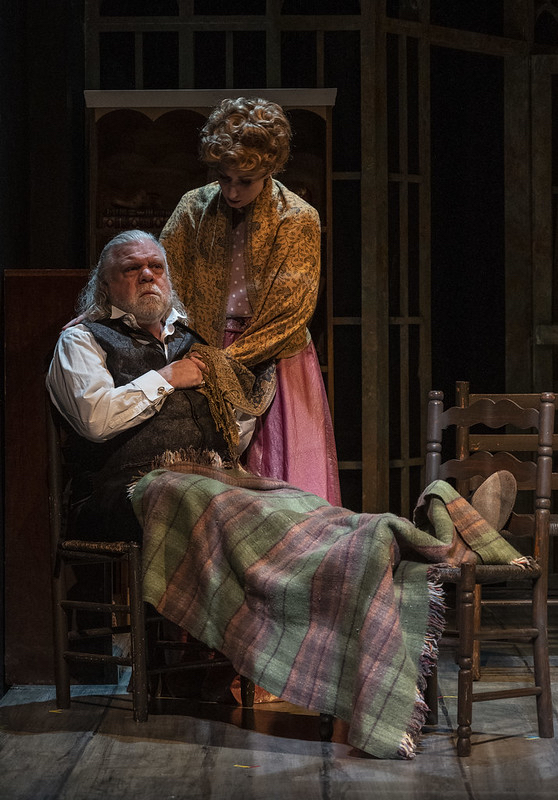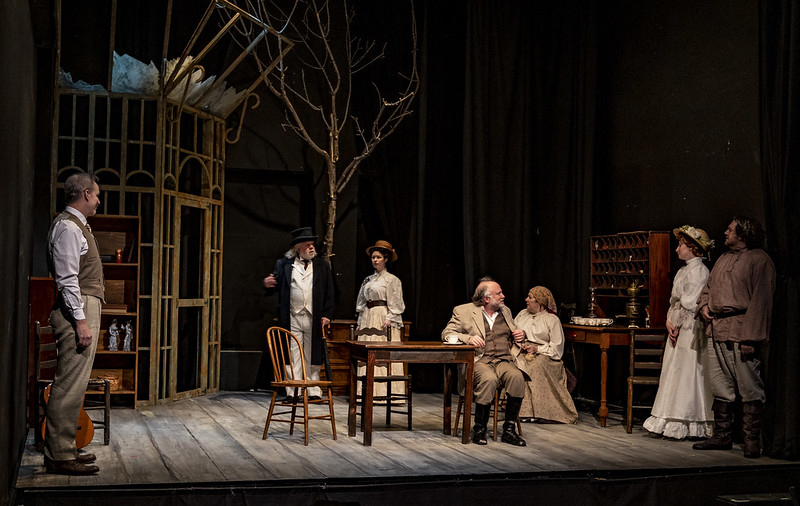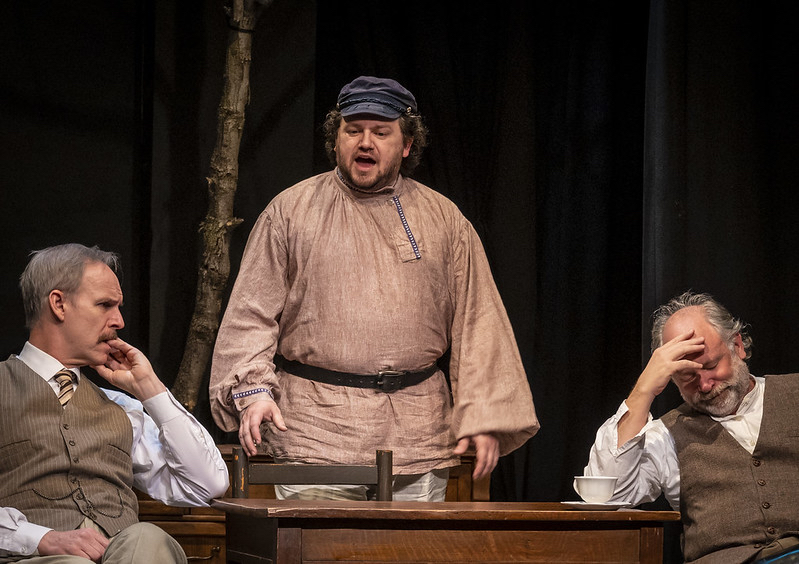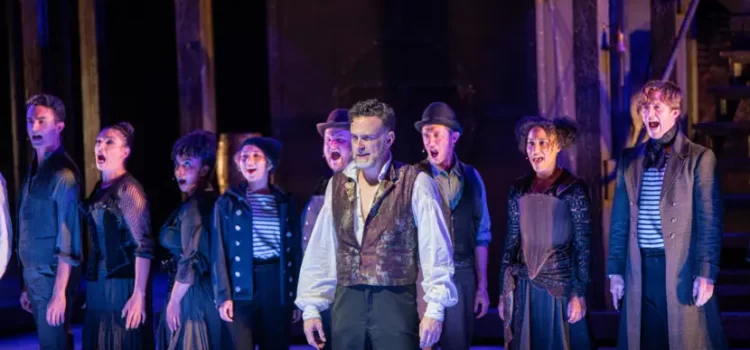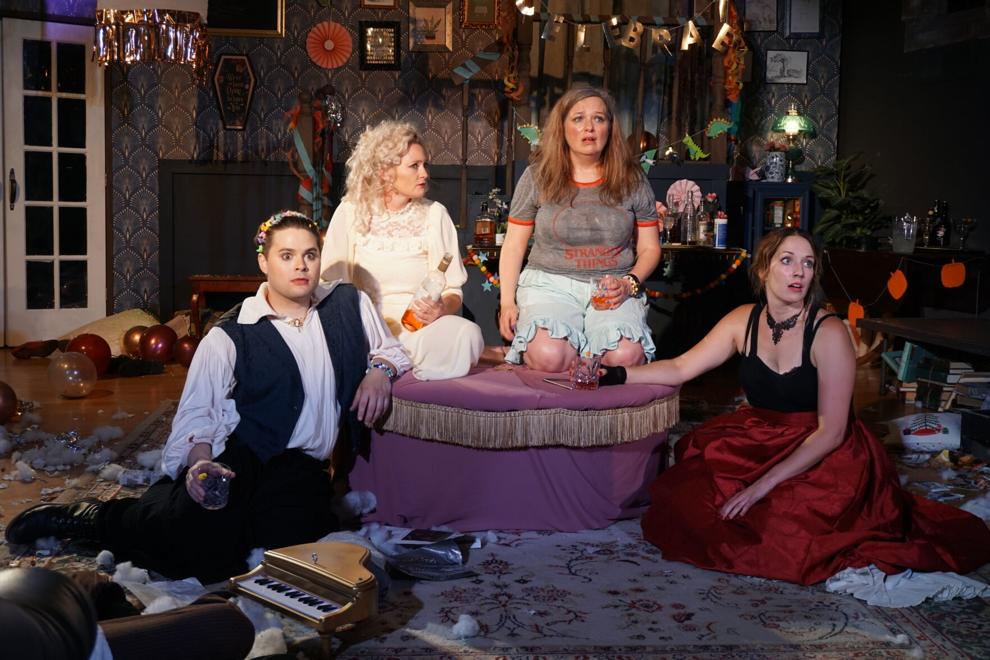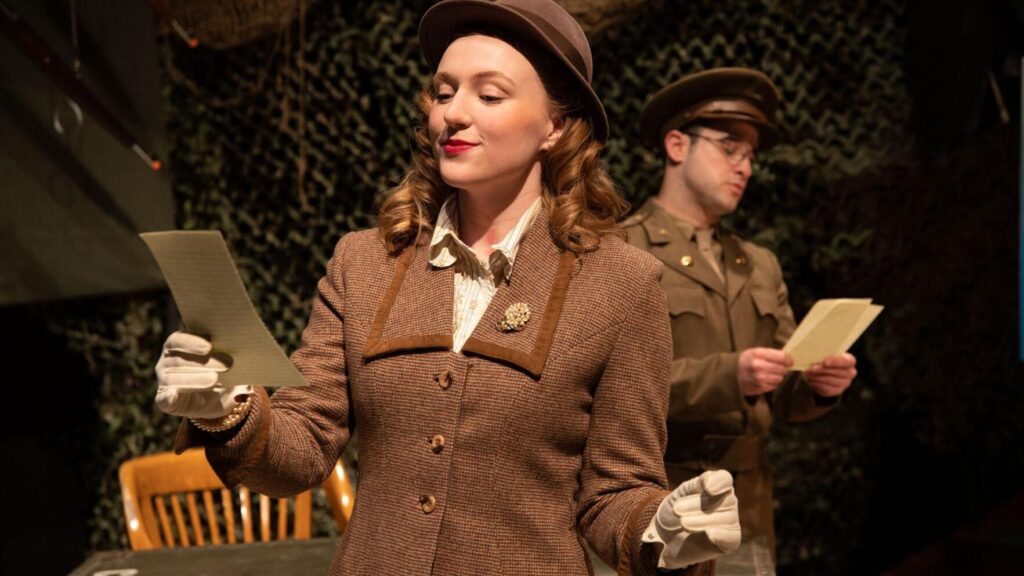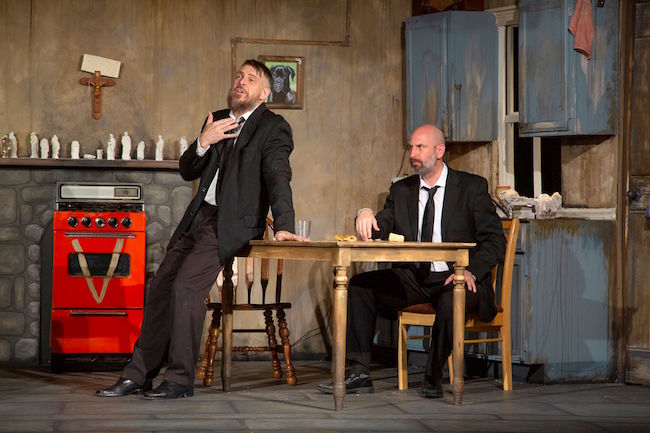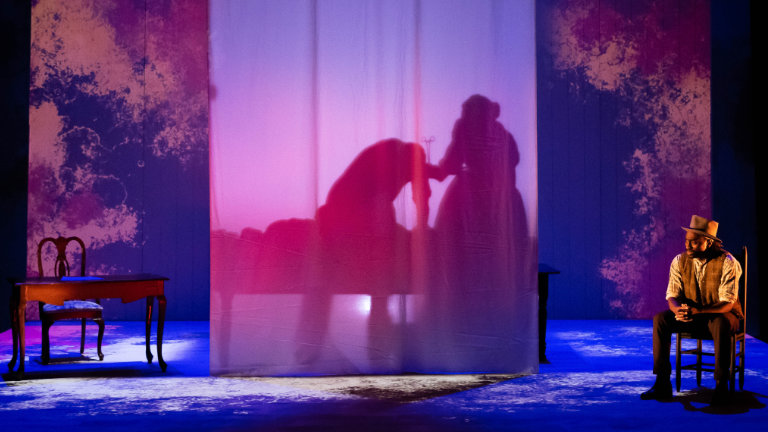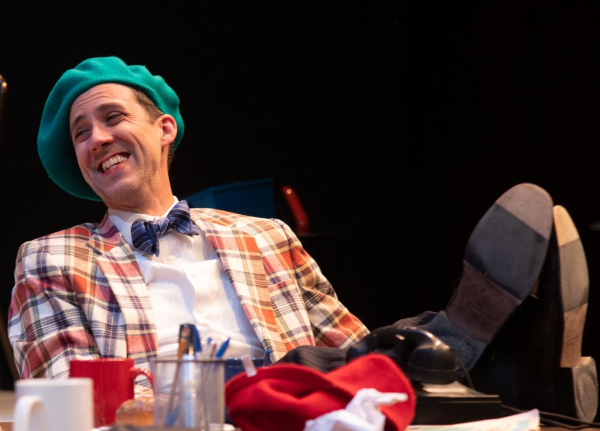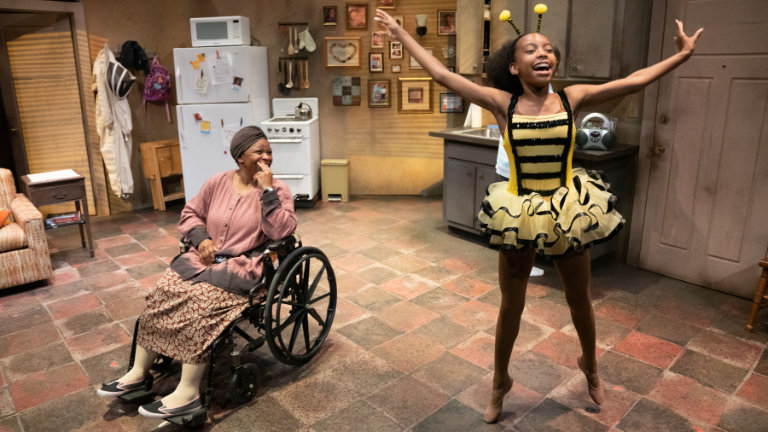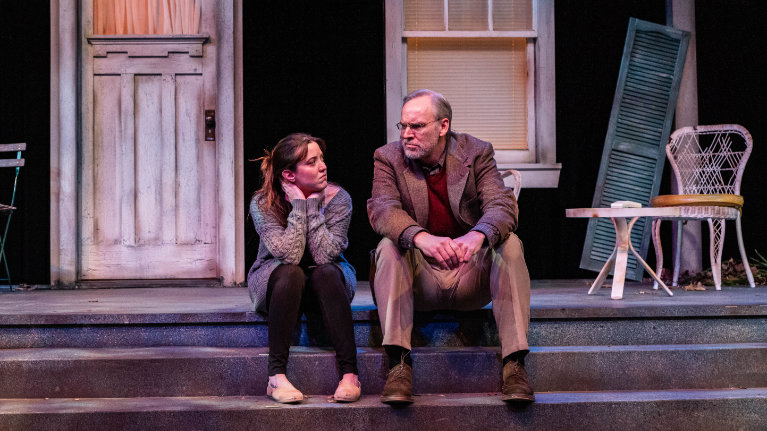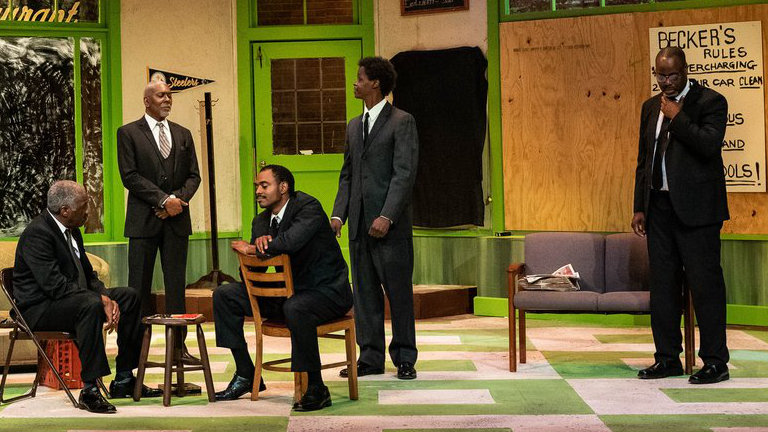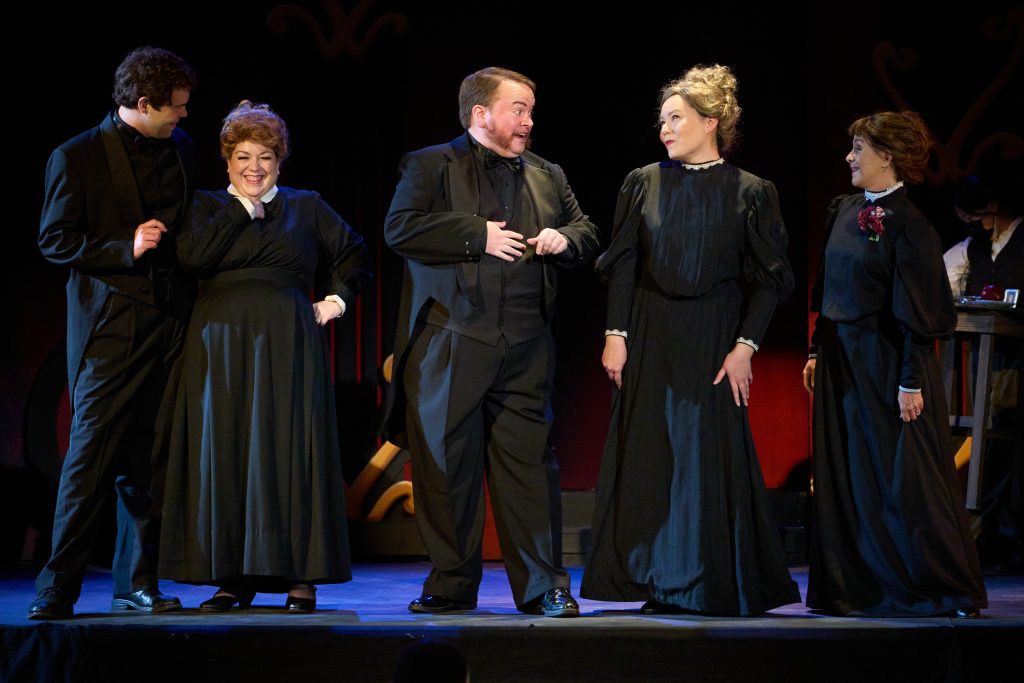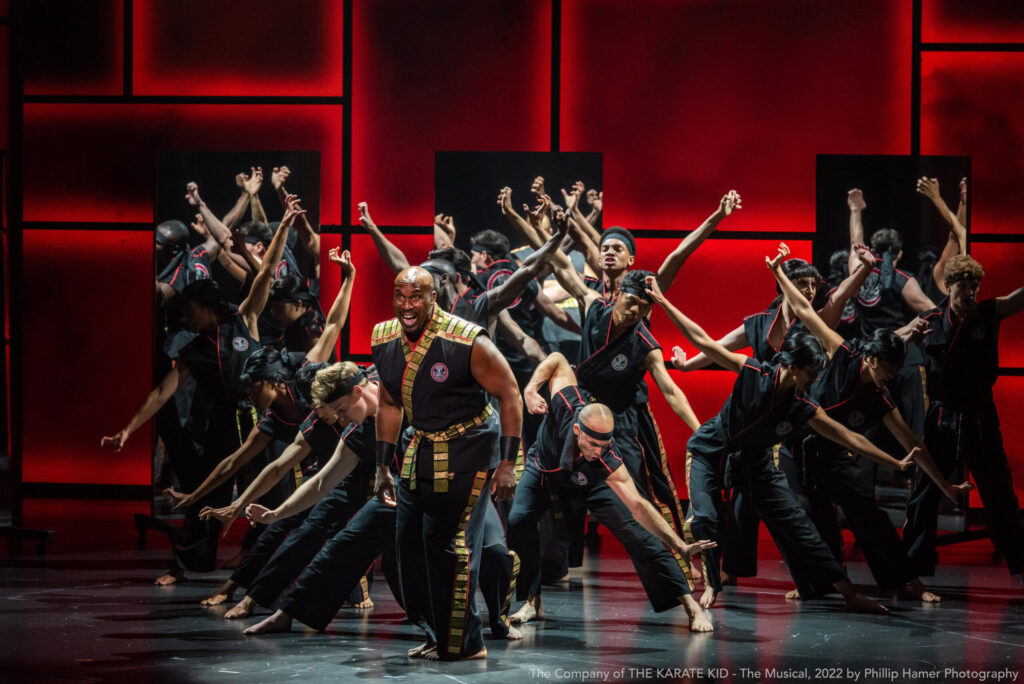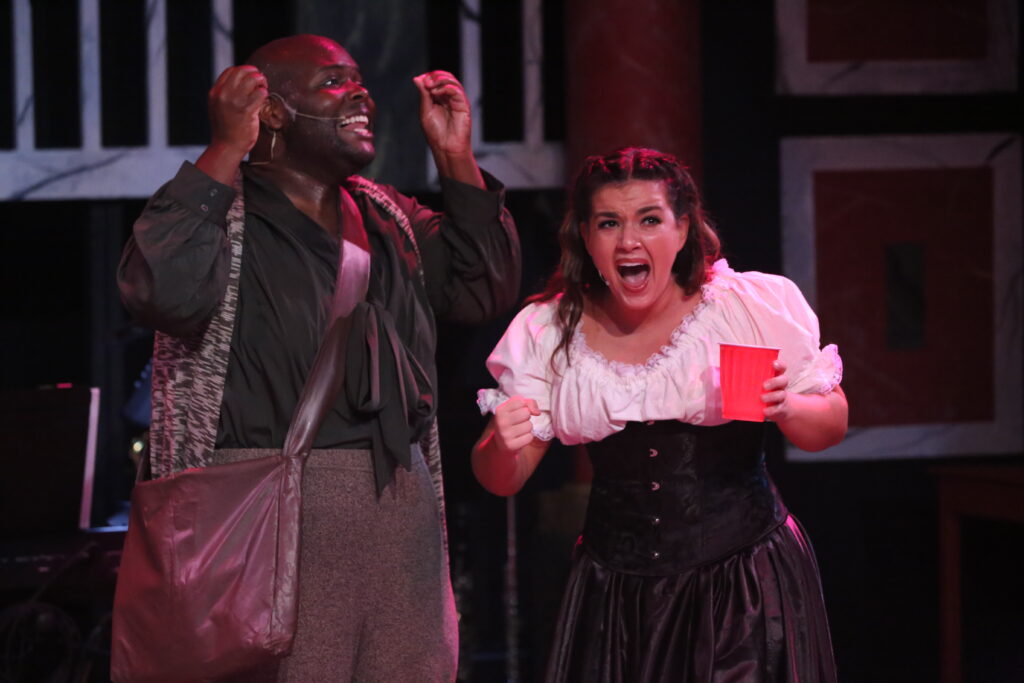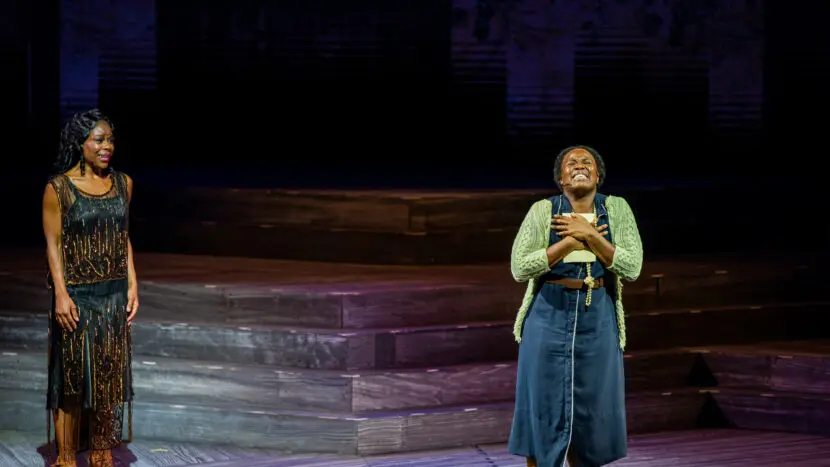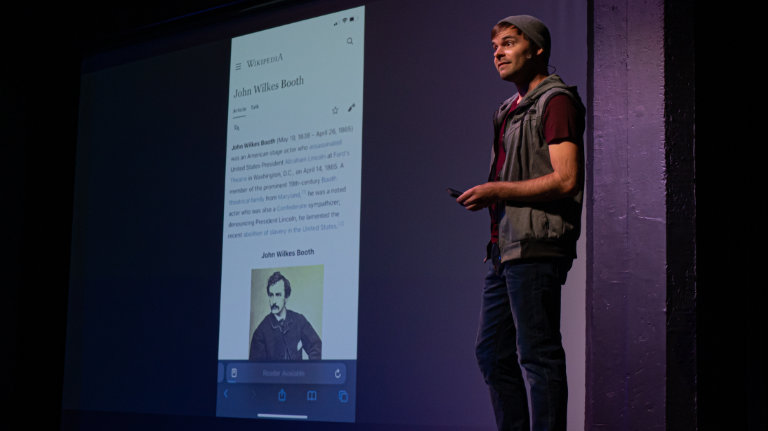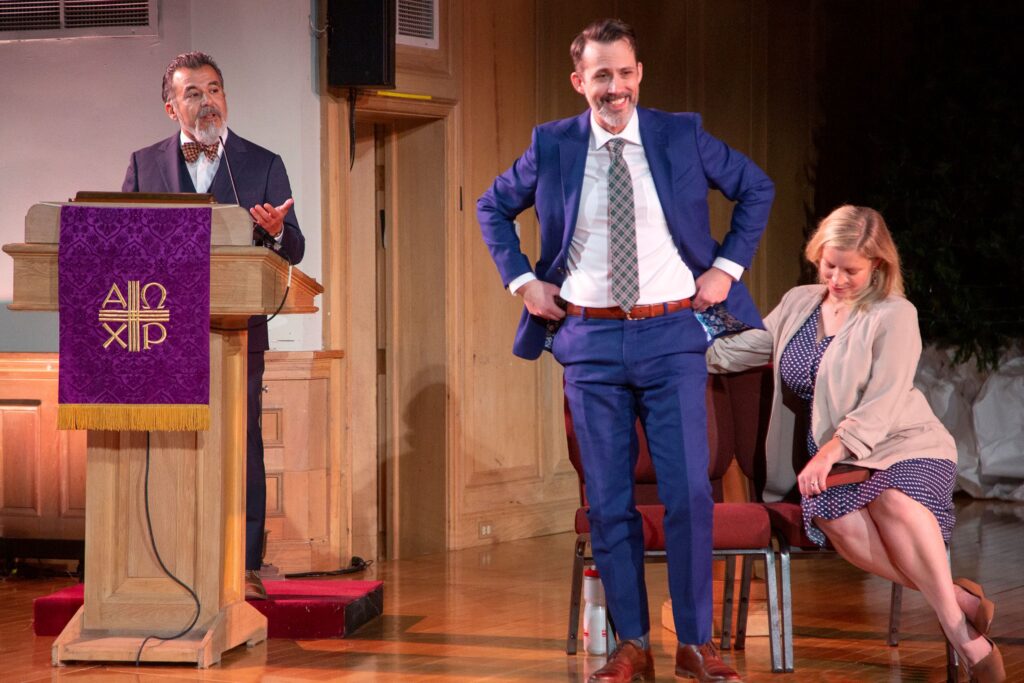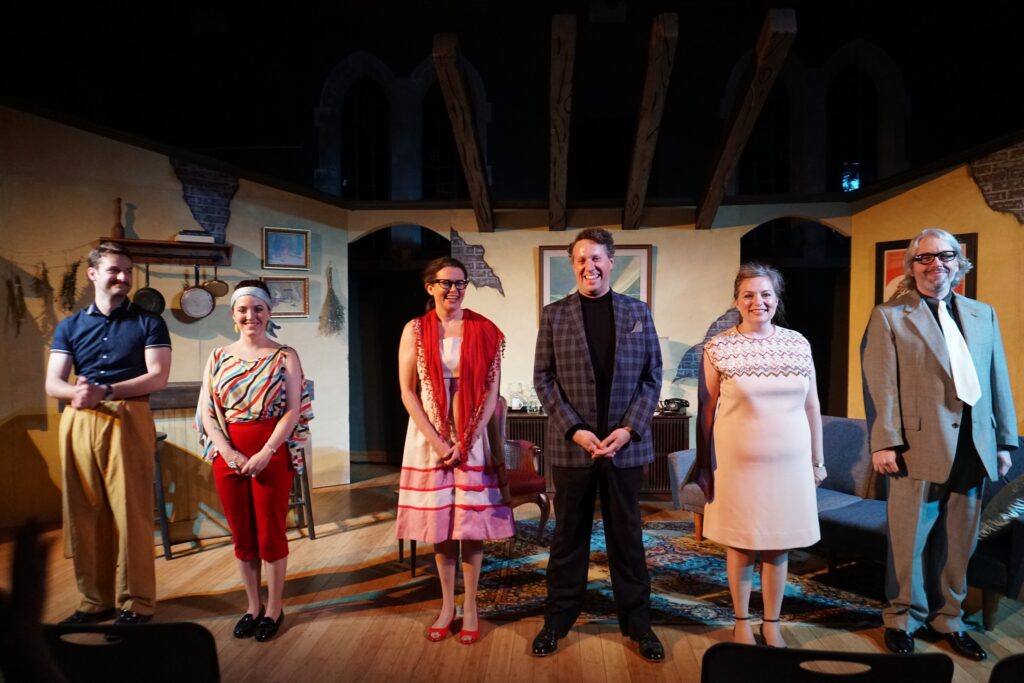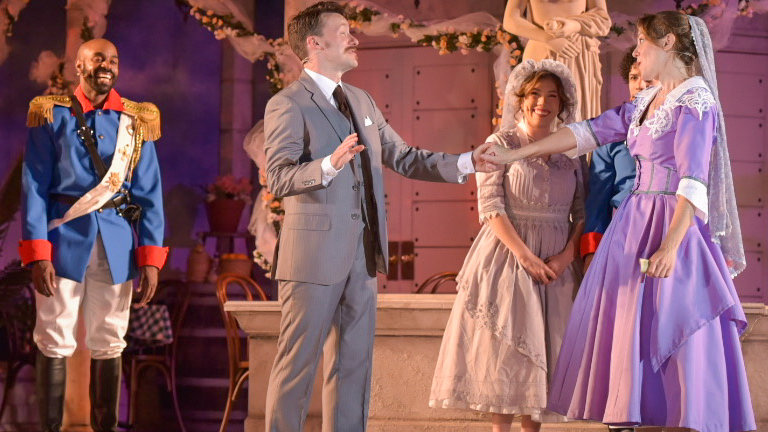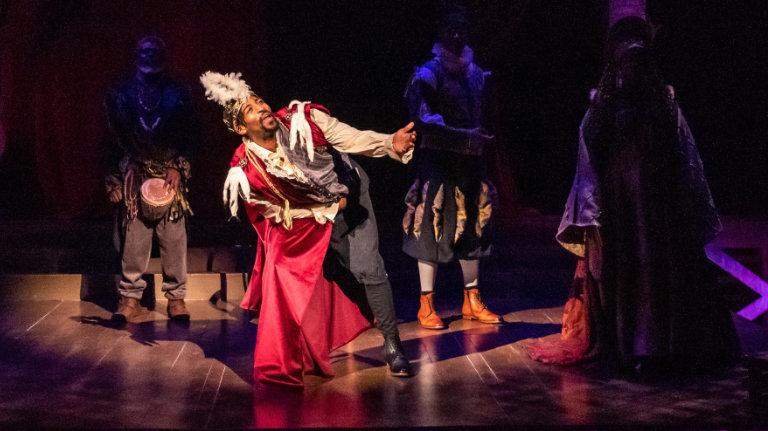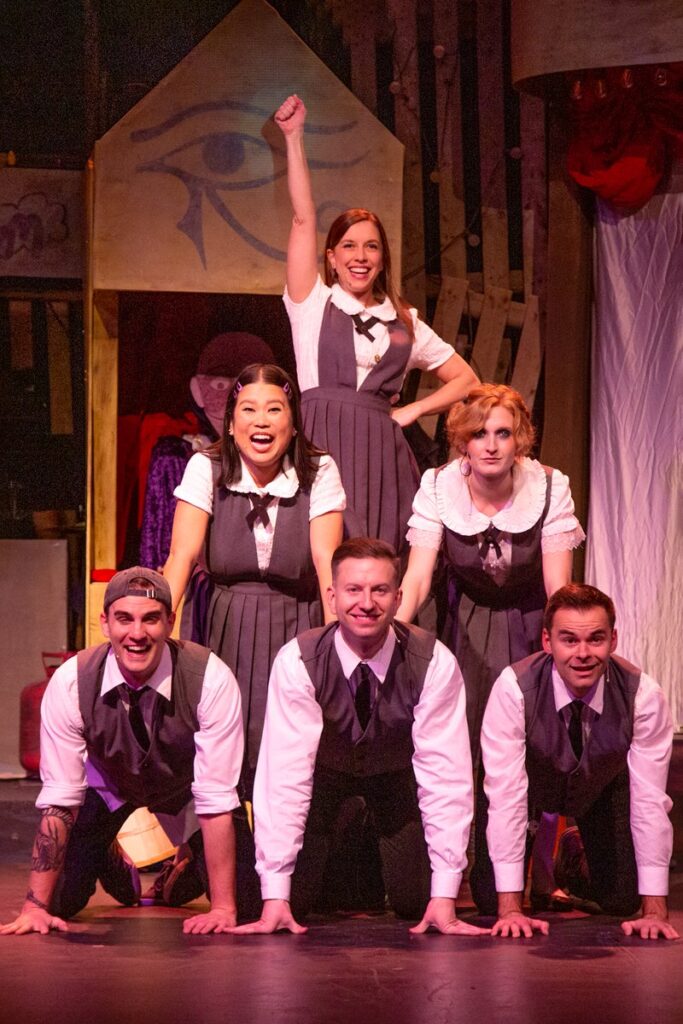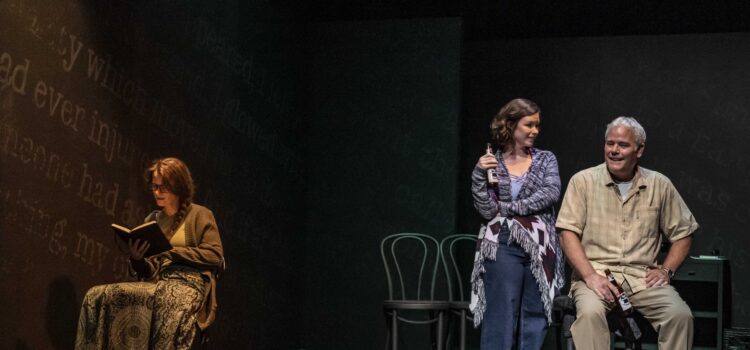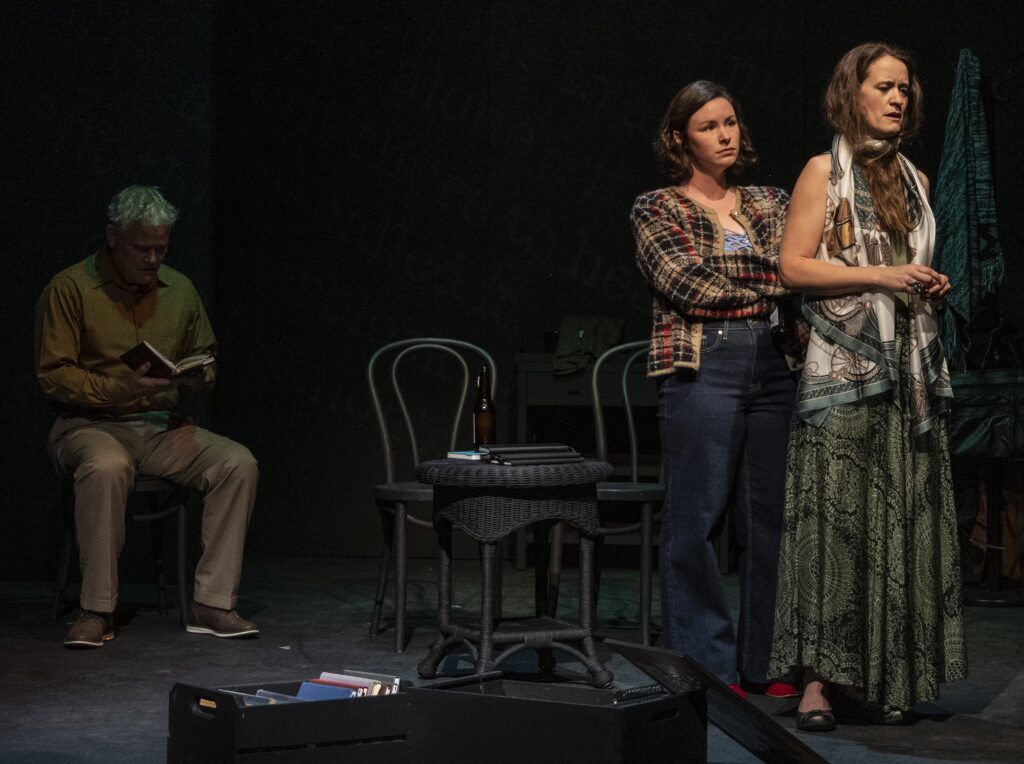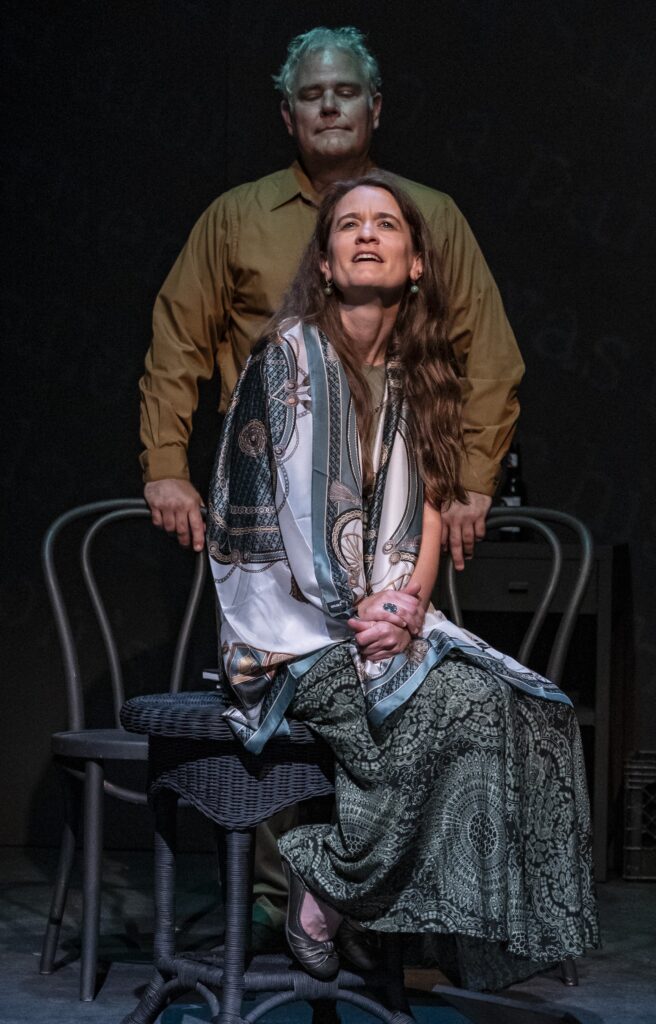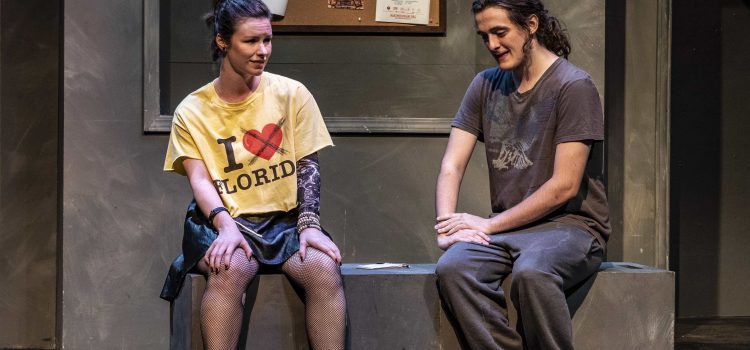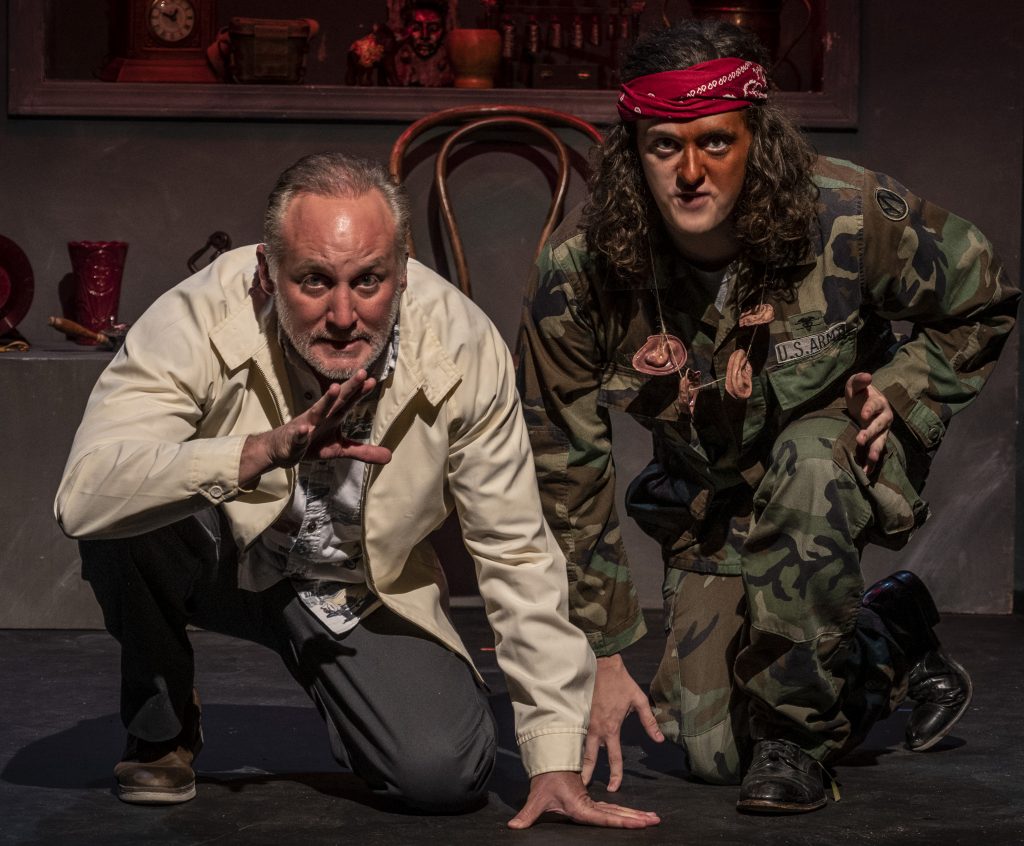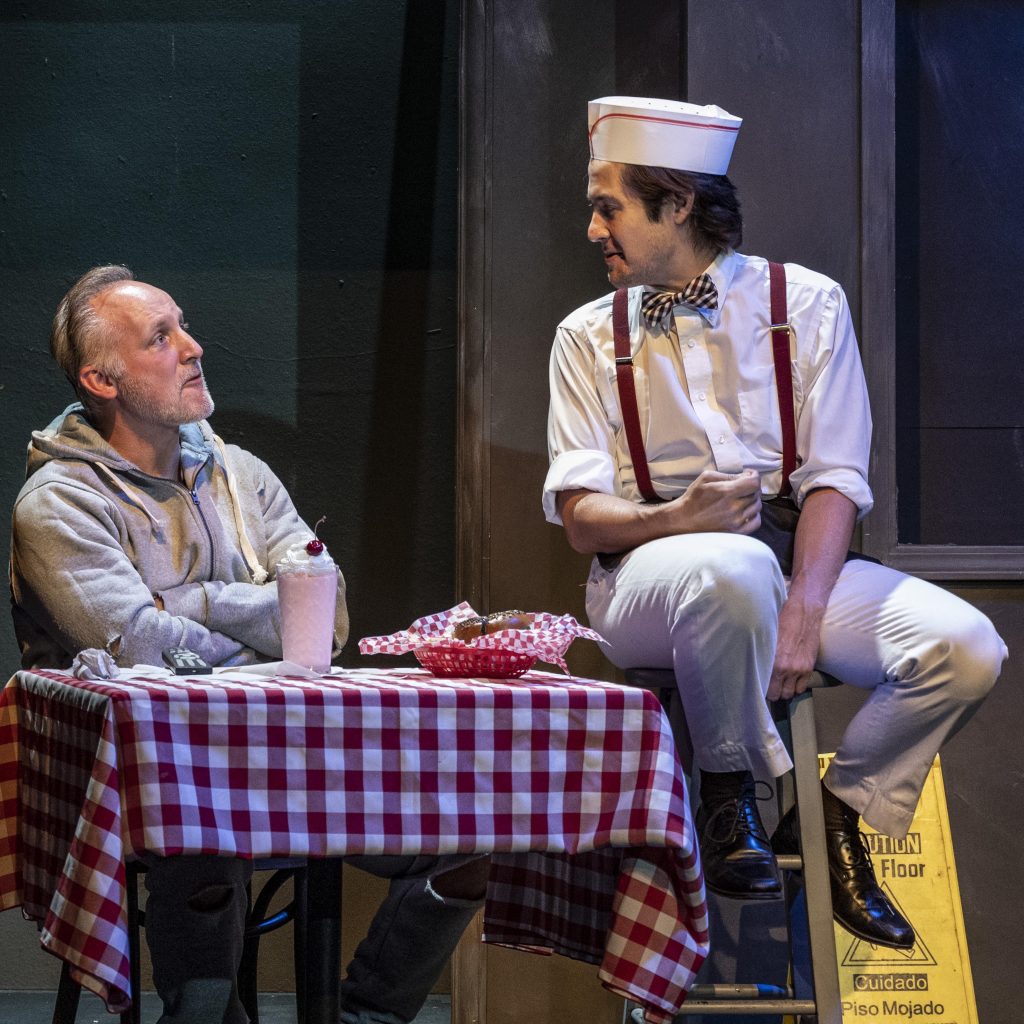By Lynn Venhaus
Back in his day, John Barrymore was considered one of the most influential and idolized actors of stage and screen. He died at age 60 in 1942, and by then, his personal life — four divorces, alcohol abuse — had overshadowed his professional career. However, his glorious stage work, particularly his “Hamlet” in 1922, drew rave reviews for his tragic portrayals, and his body of work has been a testament to his legendary impact.
So, it seems fitting that John Contini, one of St. Louis’ most respected and tenacious actors, would assume the title role for a new production at the St. Louis Actors’ Studio in a limited engagement Dec. 1 -10 at the Gaslight Theatre, 360 N. Boyle. Performances are Friday through Sunday Dec. 1-3, and Tuesday through Sunday, Dec. 5-10, at 8 p.m. except for Sundays, which are at 3 p.m. For more information, visit: www.stlas.org
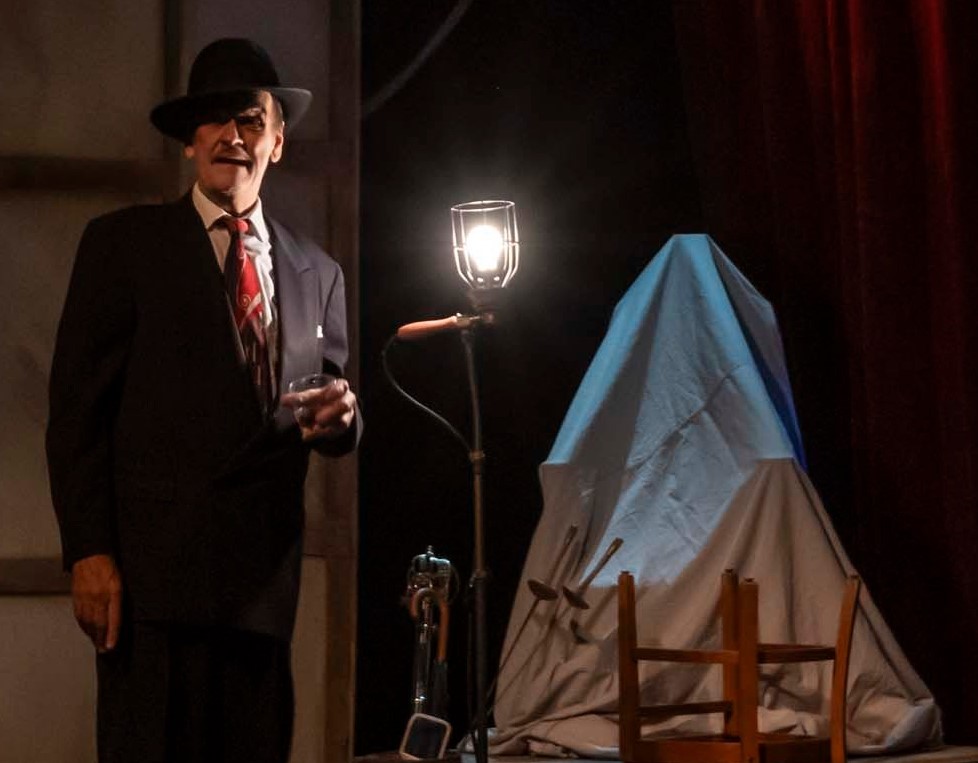
The two-person play “Barrymore” by William Luce depicts the famous actor a few months before his death as he is rehearsing “Richard III,” which would be a revival of his 1920 Broadway triumph. Each act begins with a grand entrance onto the stage that he has rented to prepare for his comeback performance. He jokes with the audience, spars with the offstage prompter, reminisces about better times, and does delicious imitations of his siblings Lionel and Ethel. Frank, the stage manager that can be heard over the theatre’s loudspeaker, is voiced by Alexander Huber. The play is directed by Erin Kelley.
Produced on Broadway in 1997, Christopher Plummer won the Tony Award for Best Performance by a Leading Actors in a Play, and reprised the role in a 2011 film adaptation.
Contini, who describes the actor as fascinating, has portrayed the larger-than-life thespian before, for the Avalon Theatre Company at the ArtSpace at Crestwood Court, both no longer in existence, in the summer of 2009. For that effort, he won a Kevin Kline Award for Outstanding Lead Actor in a Play.
“I am grateful I get to revisit and revive John Barrymore,” he said.
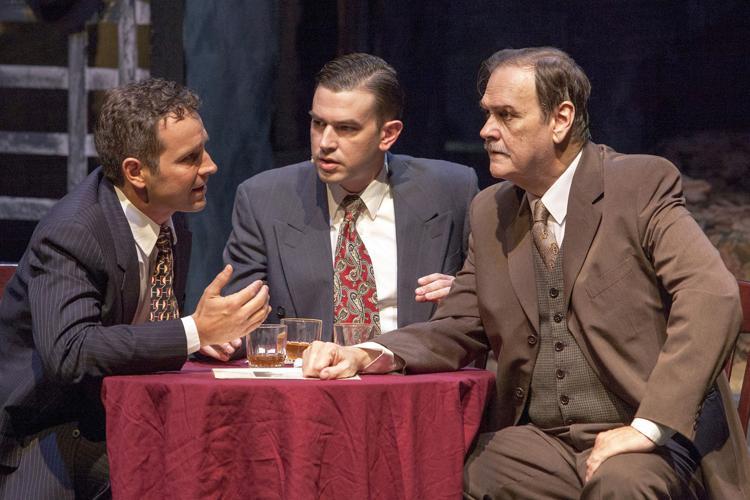
He has been an Equity and SAG/AFTRA actor for more than 40 years, and has performed in over 300 productions across the country. He has been in shows at the St. Louis Repertory Theatre, The Black Repertory Theatre, New Jewish Theatre, and The Muny in St. Louis, as well as the Fox in Atlanta, Starlight Theatre in Kansas City, August Wilson Theatre in New York City, Ozark Actors’ Theatre in Rolla, Mo., Maples Repertory Theatre in Macon, Mo., and the Bluff City Theatre in Hannibal, Mo., among others.
He won a St. Louis Theater Circle Award for Outstanding Actor in a Drama for his portrayal of Willy Loman in Insight Theater’s “Death of a Salesman” in 2014. For his “King Lear” at St. Louis Actors’ Studio, he received the GO Magazine Award as Best Actor. Other favorite roles include Tevye in “Fiddler on the Roof,” Norman Thayer in “On Golden Pond” and Henry Drummond in “Inherit the Wind.” He’s appeared in the film “Four Color Eulogy” with his son Jason Contini, who is also an actor.
He has also directed over 60 productions, including “Who’s Afraid of Virginia Woolf”: at St. Louis Actors’ Studio, for which he won Outstanding Director from the St. Louis Theater Circle. Other credits include “The Gin Game,” “American Buffalo,” “Tuesdays with Morrie,” “Deathtrap” and “I Do! I Do!”
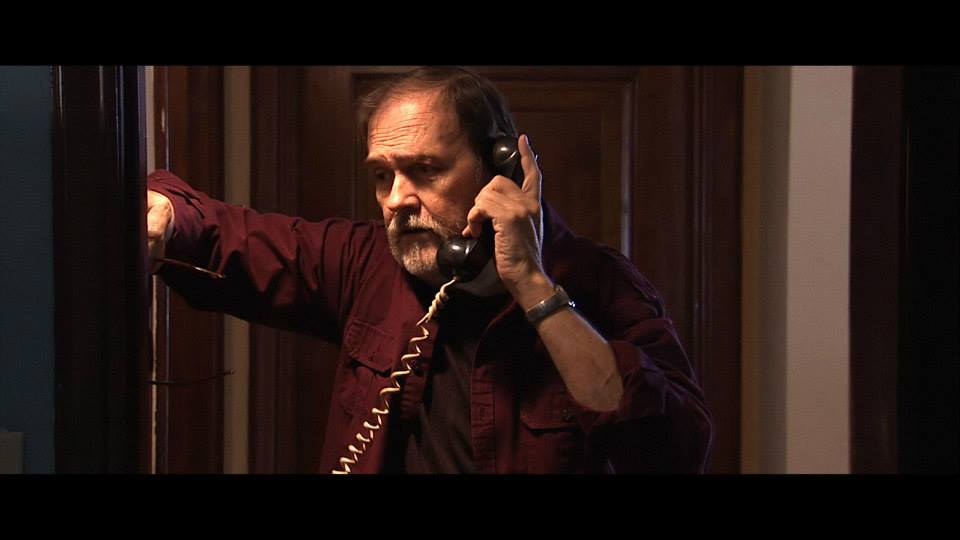
Take Ten Q &A with John Contini:
1. What is special about your latest project?
I like that I get to revisit and revive John Barrymore, who I find fascinating.
2. Why did you choose your profession/pursue the arts?
I could never see myself doing anything other than something in the Arts. The arts are the windows to our culture.
3. How would your friends describe you?
Loyal, dependable and dedicated…I hope
4. How do you like to spend your spare time?
Watching old movies, researching movies and writing and drawing.
5. What is your current obsession?
Godzilla movies and drawing at the moment
6. What would people be surprised to find out about you?
That I am a comic book collector, writer and artist.
7. Can you share one of your most defining moments in life?
Professionally : the first time I appeared on stage at the age of 18. I just knew that this is what I had to do for the rest of my life.
8. Who do you admire most?
I have always admired the actor and the man Vincent Price and how he handled his life and his career.
9. What is at the top of your bucket list?
I’m pretty easy. Go to the Oscars or the Tonys LIVE would be fun.
10. How were you affected by the pandemic years, and anything you would like to share about what got you through and any lesson learned during the isolation periods? Any reflections on how the arts were affected? And what it means to move forward?
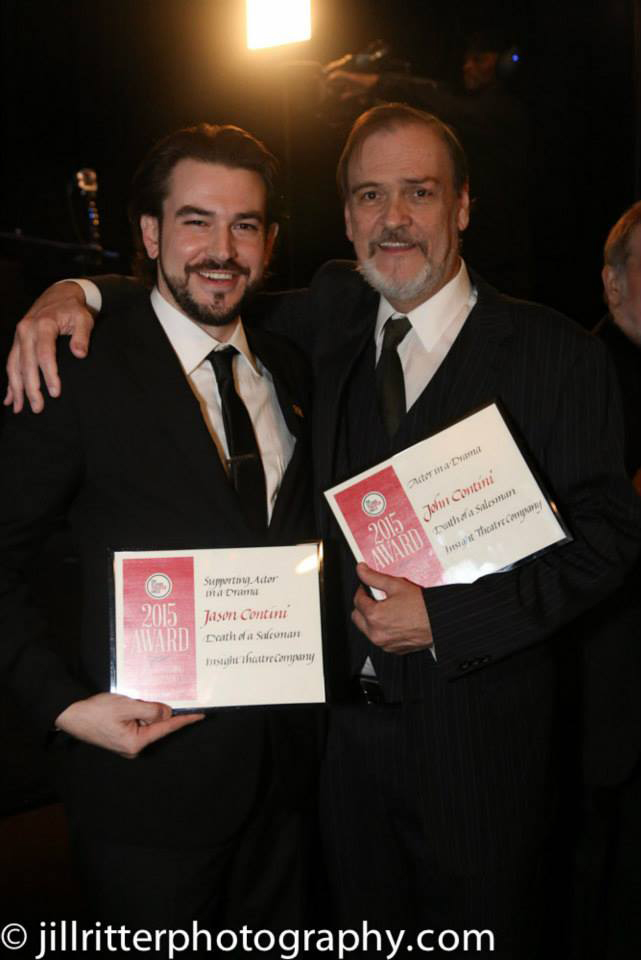
The Covid years gave me a chance to finish the book I was writing and soon publishing, and to spend more time at home also to make plans for the future when things could open up again. It gave me time to reflect on what was important to me and how I wanted to spend the time I have left. As for how Covid effected the Arts, I would say that the Arts became more private and personal because of the isolation.
11. What is your favorite thing to do in St. Louis?
Walking in different parks
12. What’s next?
I am working on a small independent film with my son Jason and promoting my book.
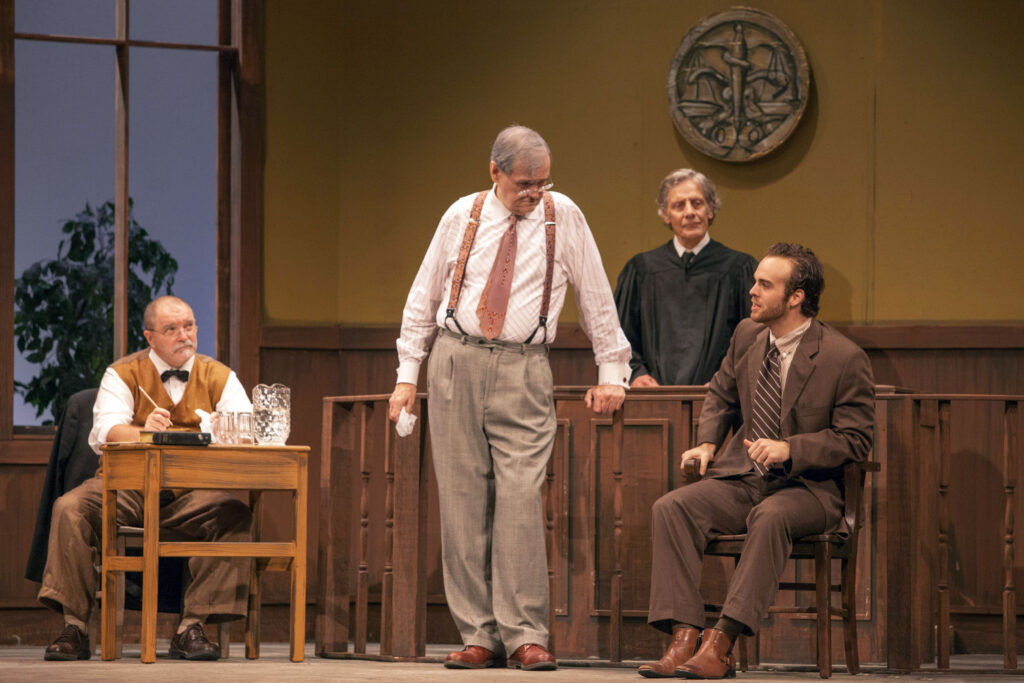
More About John Contini
Birthplace: St Louis
Current location: St Louis
Family: wife Sharon, sons Jason and Nathan, daughter-in-law Danielle
Education: highest level Master in Theatre Arts from St. Louis University
Day job: retired
First job: Bagger at South Public Market
First movie you were involved in or made: Escape From New York
Favorite jobs/roles/plays or work in your medium? Tevye in Fiddler on the Roof, Wily Loman in Death Of A Salesman, Barrymore, directing: classic dramas like Who’s Afraid of Virginia Wolff
Dream job/opportunity: Work for Spielberg
Awards/Honors/Achievements: Go Magazine Award Best Actor for King Lear, Kevin Kline award Best Actor for Barrymore, St Louis Theatre Circle awards: Best Actor for Wily Loman (Death of a Salesman) and Best Director for Who’s Afraid of Virginia Wolff
Favorite quote/words to live by: Love the ART in yourself, not yourself in the ART.
A song that makes you happy: “Comedy Tonight” from “A Funny Thing Happened on the Way to a Forum“
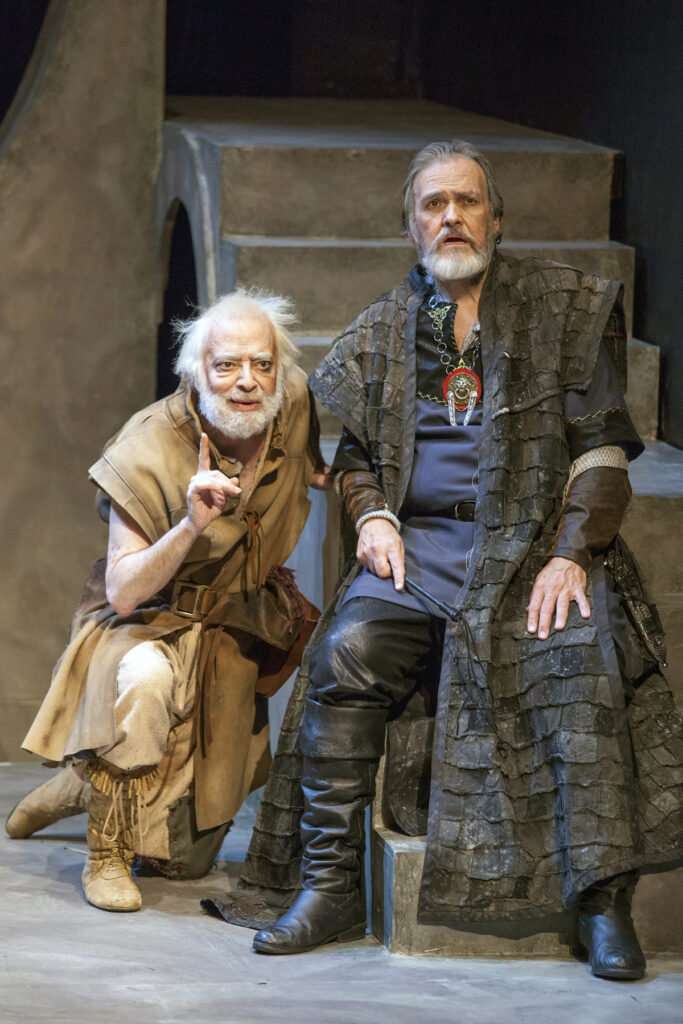
“Barrymore” is a limited engagement Dec. 1- 10, with shows performed Thursday through Saturday at 8 p.m. and Sunday at 3 p.m., with special performances Tuesday, Dec. 5 and Wednesday, Dec. 6. General admission tickets are $40 each plus fees, $35 each plus fees for students with valid ID and seniors 65+, available via Ticketmaster or at the theater box office one hour before showtime. For more information, visit stlas.org or email help@stlas.org.
About St. Louis Actors’ Studio
St. Louis Actors’ Studio was founded to bring a fresh vision to theatre in St. Louis. Housed in The Gaslight Theater in historic Gaslight Square, STLAS is committed to bringing engaging theatrical experiences to our community of actors, writers, producers, filmmakers and all patrons of the arts; and to provide a strong ensemble environment to foster learning and artistic expression. St. Louis Actors’ Studio, through the use of ensemble work, will explore the endless facets and various themes of the human condition by producing existing and original collaborative theatre. For more information, visit stlas.org.
See the trailer for “Barrymore”: https://youtu.be/3h-7-XfS13k?si=__jG3lsqRCMFCNkV
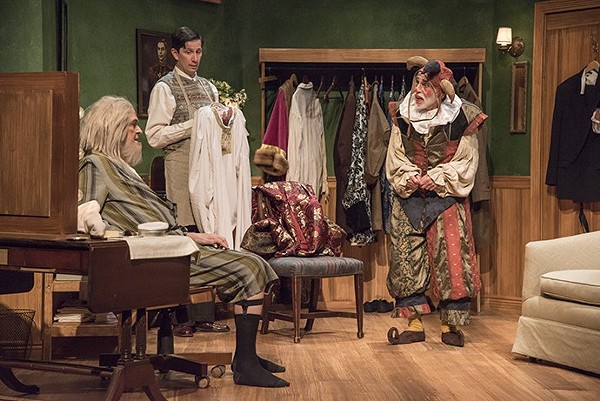

Lynn (Zipfel) Venhaus has had a continuous byline in St. Louis metro region publications since 1978. She writes features and news for Belleville News-Democrat and contributes to St. Louis magazine and other publications.
She is a Rotten Tomatoes-approved film critic, currently reviews films for Webster-Kirkwood Times and KTRS Radio, covers entertainment for PopLifeSTL.com and co-hosts podcast PopLifeSTL.com…Presents.
She is a member of Critics Choice Association, where she serves on the women’s and marketing committees; Alliance of Women Film Journalists; and on the board of the St. Louis Film Critics Association. She is a founding and board member of the St. Louis Theater Circle.
She is retired from teaching journalism/media as an adjunct college instructor.

